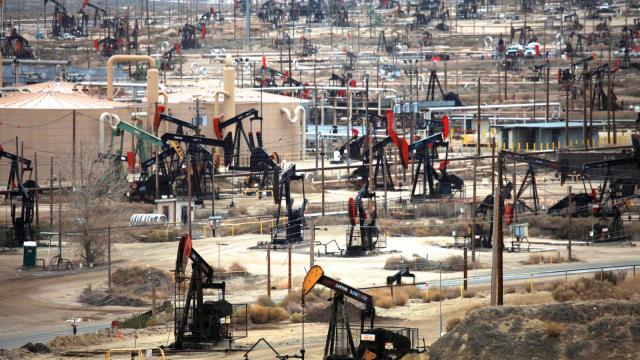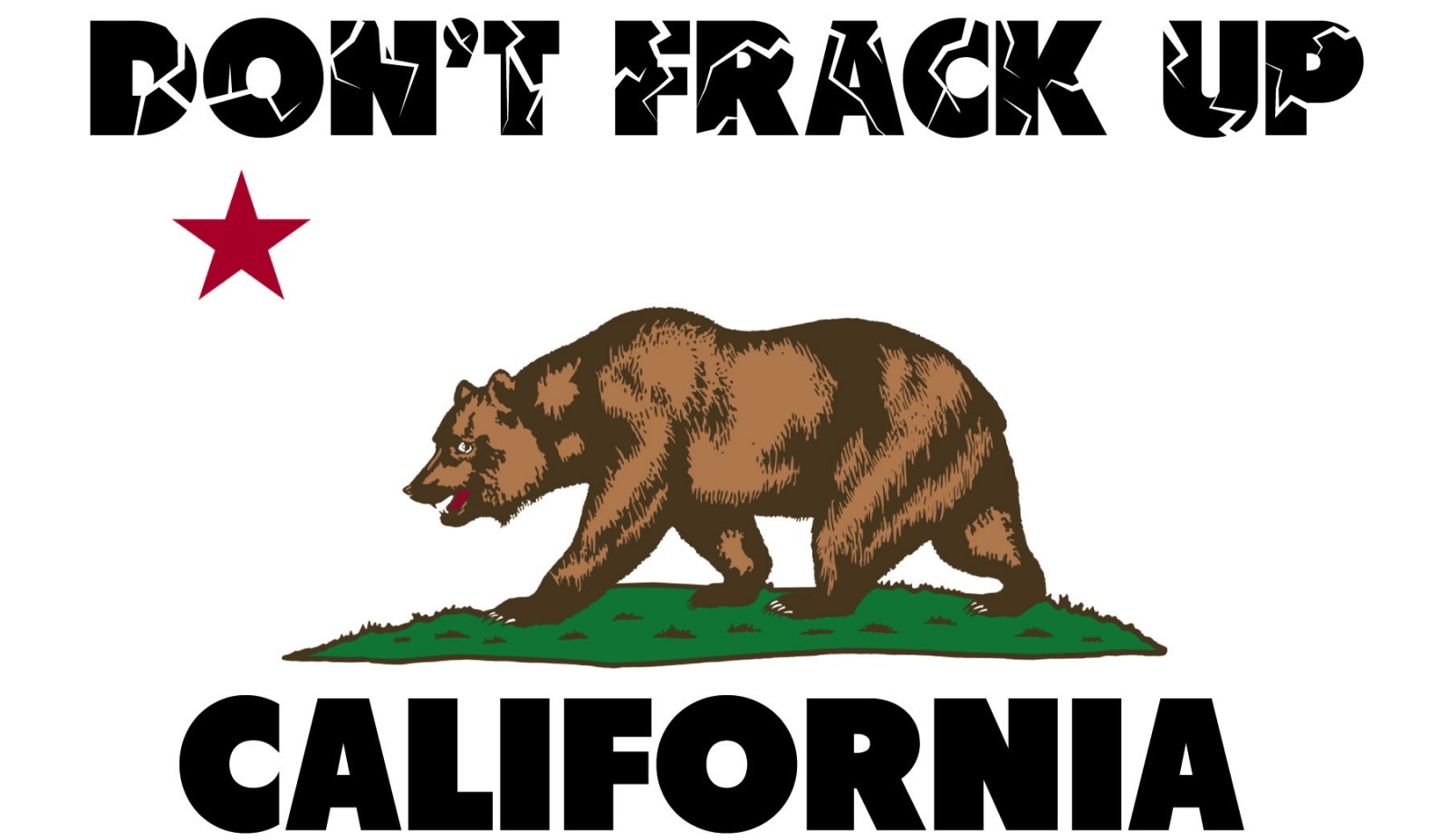
Dubbed the "future" of oil and natural gas in America — most lately by President Obama in his nationally televised climate change address — fracking is not all its hyped up to be, say scientists and environmental activists. And this is especially true in California, where the new frontline in the battle between big oil and the environment is taking shape.
While oil companies say fracking is a sensible “clean” solution to America's and specifically California’s energy needs, a wide range of scientific evidence shows that using toxic chemicals to drill thousands of feet into the earth is not a smart move — and nor are the emissions that natural gas produces something remotely resembling "clean."
The Environmental Protection Agency (EPA) is being directed by Congress to study the potential impacts of fracking on drinking and groundwater. But in another sign of government hedging on the issue, the final report which was scheduled to be released next year was just pushed back to 2016.
Fracking is the method used to extract oil and gas using hydraulics to break through the Earth’s crust to reach shale oil deposits beneath the surface. At the Monterey Shale Deposit in California, gas companies say fracking could lead to over 15 billion barrels of recoverable oil, positioning California as the country’s leading oil and gas producer.
But this boom will come at what cost? Environmentalists and scientists argue there are five major concerns that are arising from fracking, which they have seen first-hand in North Dakota. Jeremy Howard, a former consultant for the EPA who is now, in his own words, a “roaming activist,” works with numerous research groups to detail the environmental degradation of land. He has been in California for months looking into the fracking proposals for the Monterey Shale Deposit.
“I think it is my duty to put my skills to better uses than scapegoating companies through the EPA,” he began. The issue is personal for Howard, who fought against industry efforts to promote fracking as a clean alternative to traditional drilling, and hit up against walls in government.
“We must understand that there is a lot of money going to candidates and officials from the oil and exploration companies, and they want us to make it seem like this is a good idea. As the rest of the world looks for alternatives for energy, we in America can’t seem to overcome this dependence on oil. This is how we have fracking now,” he said.
Howard is like many of the environmental experts turned activists who are making their way to the Golden State in recent months as the battle over fracking heats up. For them, it isn't about the profits to the oil industry or people's cheaper cost of fuel, but the environmental consequences that will arise from drilling and pouring harmful chemicals deep beneath the earth's surface.
Howard spoke about numerous reports detailing the water and air quality problems that will be manifested through fracking as chemicals seep into water systems.
“It is personal and I believe in giving the right information to the right people — these people, who live here, because it will change their lives,” he said.
The EPA, Department of the Interior and other government agencies have reported that the fracking process can cause emissions of methane, volatile organic compounds, hazardous air pollutants and greenhouse gases into the atmosphere. At the same time, the EPA is promoting fracking as a cleaner method to procure oil and gas, as “more efficient technology and cleaner fuels increase the ways in which hydraulic fracturing equipment and vehicles reduce emissions.”
But put simply, according to a Cornell University research study, the greenhouse gas emissions like methane that will be released into the atmosphere through fracking will contribute dramatically to global climate change. The jury may still be out on what the exact costs will be, and how much fracking will exacerbate climate change, but all scientific studies point to the high risk related to leaks in the current fracking equipment being employed by companies.
Above all other concerns, water safety could be seen as the most vital in the debate. Howard says the EPA is trying to downplay the consequences of fracking on water management and clean water sources by arguing that chemicals released into water systems are “well below” the drinking water line and will therefore not impact private homes and communities.
“In a nutshell, this is bullshit,” argued Howard. “The research we have shows that fracking chemicals have been detected in groundwater levels at or close to the point where it goes to homes, so this could literally kill people.”
And he has evidence to support his claim. In 2010, in Pavillion, Wyoming, residents in fracked communities complained about their water. Health investigators found a number of chemicals associated with fracking to have seeped into their drinking supply, and urged residents not to drink it any longer.
In addition, the EPA’s senior policy counsel, Robert Sussman. said the strain that heavy-volume surface and groundwater withdrawals for fracking pose to freshwater supplies may place water resources at the center of the conflict. However, because the EPA has little authority to address this issue, Sussman said that water use regulations will be largely left to local and state governments.
Another contentious issue is the heavy use of diesel fuel. Leaders from environmental organizations are calling for a ban on diesel used in fracking due to the extreme pollution it emits.
“It’s no secret that diesel is dirty and dangerous, and belongs nowhere near our drinking water. But the natural gas industry has been using this dangerous fuel for fracking, showing once again that they cannot be trusted to police themselves. We urge the EPA to ban diesel fracking and keep Americans’ drinking water clean and safe,” said Michael Brune, executive director of the Sierra Club.
Echoing him is Bob Wendelgass, president of Clean Water Action, who said, “We applaud EPA’s action and urge the Agency to use their authority to ban diesel use and to do whatever is necessary to protect precious underground drinking water sources from chemical contamination.”
But for now, the big question for organizations in California is how to battle the oil companies whose pursuits here are already underway. Hundreds of oil and gas wells in the state are undergoing hydraulic fracturing without government oversight, sending groups like Earth Justice to court demanding that agencies regulate the oil and gas industry and stand by the state’s “foremost law that protects public health and the environment.”
The lawsuit, filed in Alameda County Superior Court, charges that the California Department of Conservation's Division of Oil, Gas, and Geothermal Resources (DOGGR) has failed to consider or evaluate the risks of fracking as required by the California Environmental Quality Act. Although DOGGR is the state agency charged with regulating all oil and gas well activity in the state, the agency admits that it has neither permitted nor monitored fracking's impacts and has never formally evaluated the potential environmental and health effects — even as it continues to approve new permits for oil and gas wells.
The legal case, according to Earth Justice, could be the impetus for a new brand of activism that is arising in opposition to fracking, as droves of scientists and environmentalists converge on the state in what observers say could be a tipping point in the "war" against fracking.
“California, as the largest state, is a key point in the ongoing struggle to save our planet. And ending fracking is key to this,” added Howard.
3 WAYS TO SHOW YOUR SUPPORT
- Log in to post comments

















